Graham Reid | | 4 min read
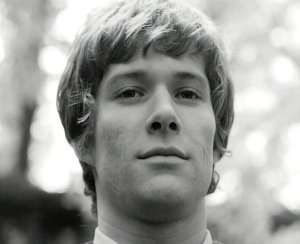
Paul Jones has enjoyed a remarkable
career in and – most rewardingly -- out of pop music.
After only three and a half years with
the Sixties band Manfred Mann, during which he sang their chart hits,
Do Wah Diddy, If You Gotta Go and Pretty Flamingo, Jones walked away
and into a solo career (hits High Time, I've Been a Bad Boy (which
was used in the film Privilege in which he starred) and Thinkin' Ain't
For Me.
“Yes, I'm forced to remind people
I’ve been in the business for over 30 years,” he told me in '99,
“and was only in Manfred Mann for a little over 10 per cent of my
career. I enjoyed almost all of it - and I'm enjoying it more since
we got back together again.”
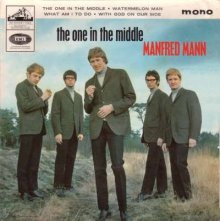 The band reformed in the early Nineties
– without founder and keyboard player Manfred Mann however – and toured successsfully as the Manfreds. And while Jones conceded
tribute bands and those with dodgy “original” line-ups cause
suspicion in the marketplace, he pointed out the Manfreds were the
real thing.
The band reformed in the early Nineties
– without founder and keyboard player Manfred Mann however – and toured successsfully as the Manfreds. And while Jones conceded
tribute bands and those with dodgy “original” line-ups cause
suspicion in the marketplace, he pointed out the Manfreds were the
real thing.
In fact, almost more so.
With the exception of Mann, the
original line-up was there -- plus singer Mike D`Abo who joined
Manfred Mann on Jones’ departure and took them on to even greater
pop heights with Just Like a Woman, Ha! Ha! Said the Clown, The
Mighty Quinn and Fox on the Run.
And Jones’ assessment they might all
be better musicians then was perhaps borne out by their careers after
Manfred Mann: Tom McGuiness formed the Blues Band with Jones in 1979
after a stint with McGuiness Flint (which included Benny Gallagher,
now of the Manfreds) and wrote for Mary Hopkins amongst others; Mike
Vickers worked as musical director for Cliff Richard, Ella
Fitzgerald, Cilla Black and others; Mike Hugg wrote film scores and
did solo albums.
In the parlance of the Sixties, the
Manfreds was a supergroup – which formed in '92 when McGuiness gave
himself a 50th birthday present of inviting everyone from every band
he’d been in to play in a pub party.
Only Eric Clapton (who’d been in the
pre-Mann Roosters) and Mann himself didn’t make it.
“We got back in the dressing room and
sat grinning at each other,” Jones said, “and somebody said, ‘You
know we can`t leave this here, don’t you?' And gradually it built
up into what it has now become.”
Jones had quit music after a tour of
Australia and New Zealand as a solo artist in the late Sixties with
the Who and the Small Faces “because there were certain excitements
which were nothing to do with music!"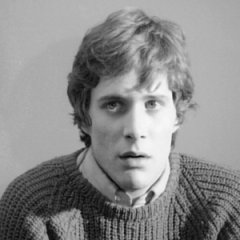
On returning to London he was invited
to perform in two one-act plays: “The audition exercise involved
reciting Do Wah Diddy Diddy with the intention of whipping up a crowd
of political activists. I dived in; tremendous fun.”
And he never looked back: a season in
the West End then Broadway with Conduct Unbecoming, musicals such as
cats, television work (Z Cars, The Sweeney, Space 1999), presenting
radio programmes on blues and gospel for the BBC, and, in 1979,
forming the Blues Band.
Of as much note howevver were two cult
films he appeared during the late Sixties: The Committee and
Privilege.
The Committee of 1968 was a surreal
Kafka-esque story about a mysterious group which calls Jones before it
after he commits a “murder”. Directed by Peter Sykes, it also
had music by The Pink Floyd “who had just drafted in Dave Gilmour
to help them because Syd Barrett had crashed - at that time it wasn‘t
intended he be a member of the group."
Privilege by Peter Watkins filmed the
previous year was even darker than The Committee: on the surface it
is the story of a young former borstal-boy turned pop star whose
performance is to re-enact being beaten and tossed behind bars, then
plead with his fans to free him.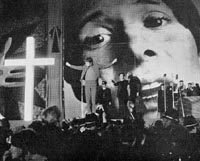
But the character is also an
emotionally damaged victim of his managers in a Britain where
institutions of governement and the church manipulate the citizenry.
It is dark and Orwellian, yet also anticipated a pop culture when artists like Bowie and Alice Cooper would create a persona and an act.
“It’s always flattering to think
you are ahead of your time,” he says of Privilege, “but I don’t
think it was, it was certainly subsequently copied. It would be quite
interesting to see it, then Stardust [a rock movie with David Essex].
You'd see certain similarities.
“That shouldn’t be the whole
evening because you should see Elia Kazan's Face in the Crowd and
Leni Riefenstahl's The Triumph of Will and you’d see those two were
tremendous influences on Peter Watkins who consciously evoked those
two.”

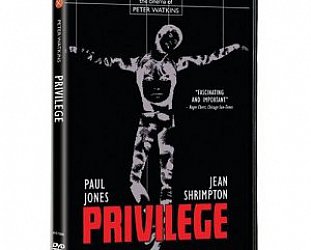

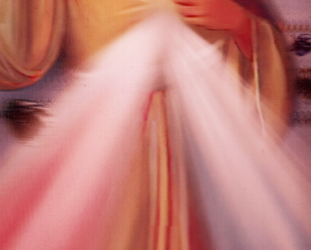
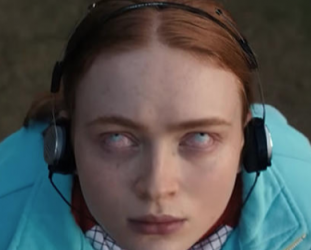
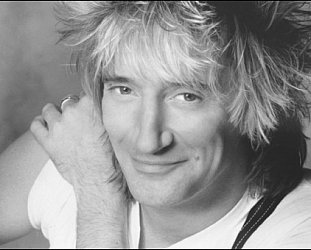
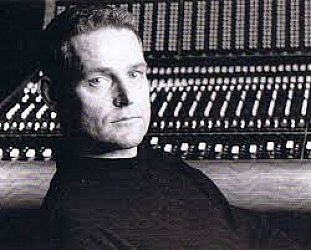
post a comment